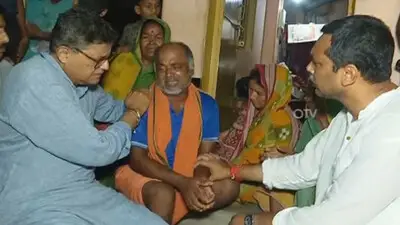Recommended Stories
New Delhi/Thiruvananthapuram/Sabarimala:The Supreme Court on Monday ruled that no temple can bar the entry of women devotees -- except on the basis of religion.
Judges Dipak Misra, Pinaki Chandra Ghose and N.V. Ramana said this while hearing a petition by the Indian Young Lawyers Association challenging the Sabrimala Ayyappa Temple's custom of prohibiting the entry of women between the age of 10 and 50 years.
The court observed that a "temple can't prohibit entry except on the basis of religion. Unless you have a constitutional right, you can't prohibit the entry".
The next hearing has been scheduled for February 8.
The ruling immediately divided the faithful into two camps -- those who want to retain the present system and those who want that women of all age groups should be allowed entry into the Sabarimala temple.
"Even though god does not differentiate between man and woman, as far as Sabarimala temple and its traditions are concerned, it has a well thought out process and a system," Kalidasan Namboodiripad, a tantric priest in Kerala, told IANS.
"The fulcrum of the Sabarimala pilgrimage revolves around a 41-day penance. Keeping that in mind, the question of women being able to do that cannot happen because it is not possible and practical," he added.
Situated on the mountain ranges of the Western Ghats at 914 metres above sea level, the Sabarimala temple is four kilometres uphill from Pamba river in Pathanamthitta district, around 100 km from Thiruvananthapuram.
The temple, which bars the entry of women who have attained puberty, is accessible only on foot from Pamba.
Till a few years back, it was open only for two months -- from mid-November to mid-January. Now it is kept open for five days every month. It draws millions of devotees, mainly from southern India.
Former Devasom minister and CPI-M legislator G. Sudhakaran said women should be allowed entry into the Sabarimala temple. He recalled that the Left government had said so to the Supreme Court in 2008.
"Where men can enter, women also should and can enter," Sudhakaran said.
But Kantereru Rajiveru, the Sabarimala temple thantri, defended the bar on women.
"A decision on what should be told to the court has to be taken only after discussions with all concerned as faith is of prime importance," he said.
Kerala Devasom Minister and Congress leader V.S. Sivakumar told reporters that the government would look into all aspects before returning to the Supreme Court.
With the two-month temple season on, even devotees seemed to be split.
"What's wrong if women also come and pray here? It should be open to women also so that there can be family pilgrimages," said a male pilgrim at the foothills of the temple.
But a 43-year-old woman said she was a Lord Ayyappa devotee and "somehow I feel that women need not be permitted to enter".
"Traditions and customs cannot be addressed by a court of law," said the homemaker in Thiruvananthapuram.
Strongly backing the existing custom, Rahul Easwar told IANS in Chennai that there were other Ayyappa temples women of all age groups could go to.
Shoba Warrier, a journalist in Chennai, told IANS: "If the temple does not want women to come, then so be it. There are other temples for us to go."
According to Warrier, the argument that Ayyappa was a celibate and hence young women were not allowed may not be right as there was no such bar on visiting other celibate Hindu gods such as Hanuman.
In 2006, all hell broke loose when Kannada actress Jaimala claimed she had touched the famed Sabarimala deity in 1987, violating a age-old temple tradition.













